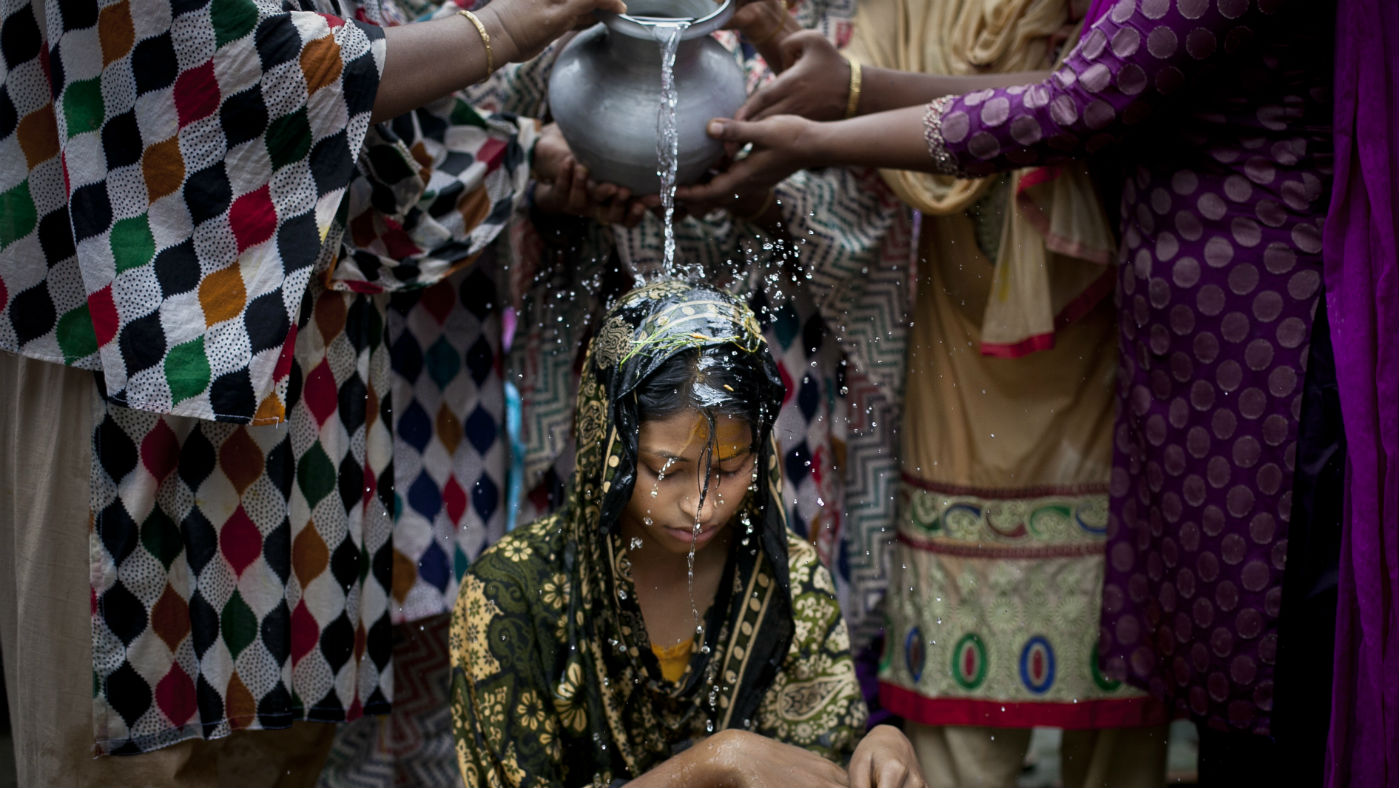Twenty thousand underage girls ‘marry illegally every day’
World Bank says one in three girls in developing world is victim of underage marriage

A free daily email with the biggest news stories of the day – and the best features from TheWeek.com
You are now subscribed
Your newsletter sign-up was successful
More than 20,000 underage girls marry illegally around the world each day, according to analysis by the World Bank and Save the Children.
That means 7.5 million girls each year are married below the minimum age permitted in their respective countries. One in every three girls in the developing world marry before they are 18.
Despite progress made in recent years by countries such as Costa Rica, Mexico and Zimbabwe to raise the legal age of marriage or eliminate legal exemptions, two-thirds of underage marriages are taking place in countries where they are legally banned, “suggesting laws are not enforced”, says The Guardian.
The Week
Escape your echo chamber. Get the facts behind the news, plus analysis from multiple perspectives.

Sign up for The Week's Free Newsletters
From our morning news briefing to a weekly Good News Newsletter, get the best of The Week delivered directly to your inbox.
From our morning news briefing to a weekly Good News Newsletter, get the best of The Week delivered directly to your inbox.
Meanwhile, in other countries, the minimum age for marriage is lower under religious or customary law than national law, which undermines legal protection.
Kirsty McNeill of Save the Children described the impact of illegal marriage on underage girls. She said: “When a girl gets married too young, her role as a wife and a mother takes over. She is more likely to leave school, she may become pregnant and suffer abuse.”
This in turn can increase pressure on social services often in countries where basic amenities are already at breaking point, McNeill said.
The study, released to mark international Day of the Girl, comes ahead of an African-led conference in Senegal later this month aimed at ending child marriage on the continent. In west Africa alone, it is estimated that 1.7 million girls are married below the minimum legal age every year.
A free daily email with the biggest news stories of the day – and the best features from TheWeek.com
-
 How the FCC’s ‘equal time’ rule works
How the FCC’s ‘equal time’ rule worksIn the Spotlight The law is at the heart of the Colbert-CBS conflict
-
 What is the endgame in the DHS shutdown?
What is the endgame in the DHS shutdown?Today’s Big Question Democrats want to rein in ICE’s immigration crackdown
-
 ‘Poor time management isn’t just an inconvenience’
‘Poor time management isn’t just an inconvenience’Instant Opinion Opinion, comment and editorials of the day
-
 Epstein files topple law CEO, roil UK government
Epstein files topple law CEO, roil UK governmentSpeed Read Peter Mandelson, Britain’s former ambassador to the US, is caught up in the scandal
-
 Iran and US prepare to meet after skirmishes
Iran and US prepare to meet after skirmishesSpeed Read The incident comes amid heightened tensions in the Middle East
-
 Israel retrieves final hostage’s body from Gaza
Israel retrieves final hostage’s body from GazaSpeed Read The 24-year-old police officer was killed during the initial Hamas attack
-
 China’s Xi targets top general in growing purge
China’s Xi targets top general in growing purgeSpeed Read Zhang Youxia is being investigated over ‘grave violations’ of the law
-
 Panama and Canada are negotiating over a crucial copper mine
Panama and Canada are negotiating over a crucial copper mineIn the Spotlight Panama is set to make a final decision on the mine this summer
-
 Why Greenland’s natural resources are nearly impossible to mine
Why Greenland’s natural resources are nearly impossible to mineThe Explainer The country’s natural landscape makes the task extremely difficult
-
 Iran cuts internet as protests escalate
Iran cuts internet as protests escalateSpeed Reada Government buildings across the country have been set on fire
-
 US nabs ‘shadow’ tanker claimed by Russia
US nabs ‘shadow’ tanker claimed by RussiaSpeed Read The ship was one of two vessels seized by the US military